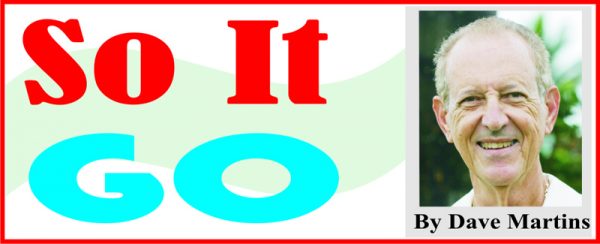
What caught my interest initially in the St. Lucia information was the reference to a seminar for musicians, staged by the island’s Ministry of Culture and, in particular, its emphasis on many of the technical aspects of a music career, including bookings and financial dealings but also including a primer on methods and demands pertaining to the recording industry; very useful stuff for the music professional. However, what made me sit up and pay more attention was to see that what the folks in Castries had launched was a very comprehensive programme for the culture generally of the island. Certainly, the musician in me was intrigued by the seminar for musicians obviously aimed at persons working or planning to work in that industry, but what was even more attractive was the blanket approach to all arts matters that the folks in Castries have embarked upon in this launch of a Cultural Development Foundation (CDF) plan. I say “attractive” because that umbrella approach was part of my initial note to myself, and having long regretted the absence of such a focus in Guyana, the St. Lucia press release came to serve as a “do it now” reminder… for me, anyway.
Going in, the fundamental concept involved here is the need for the people of a nation to know their achievements, whatever they may be; to know not only of their political leaders from this era or that, but to know of their people who have excelled, across the spectrum, and about the unique or special things about their culture. That basic information, on what I term “examples of excellence,” is a body of fundamental knowledge of self that is operating at the base of every developed culture we know. It is the source of the American braggadocio, the Francophone and Italian exuberance and flair, the German strut, the Oriental patience, and the British air of condescension. In the Caribbean, we are abysmally lacking in shouting about ourselves (my song “Where Are Your Heroes?” is making that point) and this recent nudge from Castries is propelling the thought that we must embark on just such a cultural injection here.
Also going in, I don’t pretend to understand the thinking in play when subjects or departments are selected or apportioned in various Caribbean government bodies, including our own, but my own experience living outside for 44 years tells me that we have miles to go in reaching the point where our people know our successes across the board. Whoever does it here, or however they do it, we cannot continue to postpone, or even relegate the matter any longer. The lack of information about us, our own story, is critical for our self-confidence today, but it is even more urgent for the younger generation, struggling with questions of capability; ongoing and persuasive cultural information programmes must be provided for them. The CDF being created by the St. Lucian Ministry of Culture, akin to Cayman’s National Cultural Foundation, is the nucleus of an idea that would serve us well here. Over the years, Guyana has produced many impressive sons and daughters, in various fields, but not enough of us know about them. Stop young Guyanese on the street anywhere and ask them what the Guyanese named Laddie Lewis was famous for; I’m betting you will get a lot of blank faces and ‘Me en know.” Ditto for Tarrant Glasgow, Robert Christiani, Young Joe Louis, and King Fighter. The name Ocean Shark may sound like a famous swimmer, but he wasn’t; what was he famous for? A Cultural Development Programme, applied here, would leave us all more informed about our outstanding Guyanese—who they are and what they achieved. Similarly, the section of such a programme providing information about the icons of that country is something we could benefit from here.
On that latter note, let me close with an entry coincidentally posted on Facebook this week. It comes from Courtney Noel and he was reacting to another post calling for us to become more aware—of who we and of our own. Courtney wrote: “When I see the sunset at Iwokrama/relaxing at Baganara/When I see Sarwan lash dem fuh six/When I see Hugh Ross bringin’ de licks/When I see Eddy Grant on a postage stamp/When ‘Six Head’ became de new champ/When the Floating Bridge comes into view/l see what Guyanese hands can do/ It fills me with Pride! Pride! Pride! Pride! It’s what I feel inside…oh my children! When it’s real it cannot hide! Pride in yuh country! Pride in yuh health! Pride in yuh family! Pride in yourself! Remember your Pride! (Lyrics taken from ‘PRIDE” (is what I feel inside)) Sometimes I get the feeling I’m wasting my time with all these patriotic pieces, but I always end up reminding myself that Brother Ezie Rockliffe, Dave Martins, Ron Bobb-Semple, Marc Matthews, Bonny Alves, Burchmore Simon, Ken Corsbie, Pritha Singh, Eddie Hooper, Habeeb Khan, Aunty Cum See, Uncle Francis Quamina Farrier, and countless others have been there, done that. For which I am eternally grateful. The Journey continues.”





